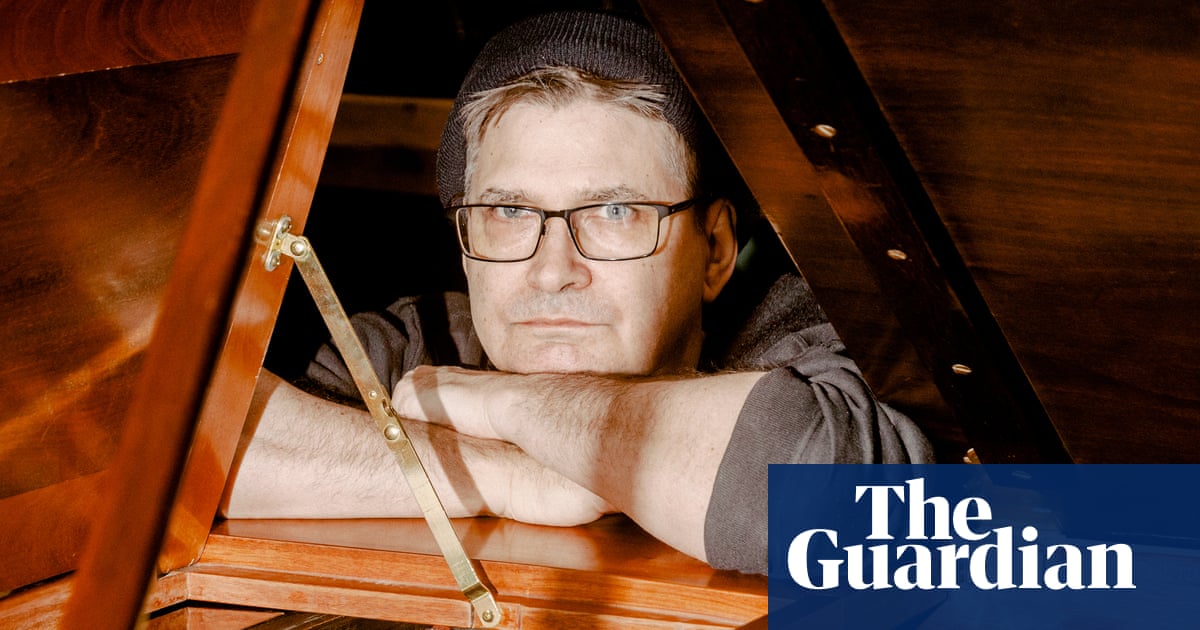Steve Albini, the vocalist, guitarist and producer who was at the helm of a series of the most esteemed albums across the US alternative music scene, has died aged 61 from a heart attack suffered at his recording studio. Staff at his studio, Electrical Audio, confirmed the news to Pitchfork.
As well as fronting the bands Big Black, Rapeman and Shellac, who all pushed at the boundaries of post-punk and art-rock, Albini also produced – or, to use his preferred term, engineered – albums by Nirvana, Pixies, PJ Harvey and Jimmy Page and Robert Plant. He was noted for his DIY and punk ethos, resisting streaming services and refusing to take royalties from the recordings he produced for other artists.
Shellac were preparing their first album since 2014, To All Trains, for release next week.
Born in California in 1962, Albini’s musical inspirations came from the punk movement, chiefly the Ramones but also the weirder end of the genre with bands such as Devo and Pere Ubu. He moved to the suburbs of Chicago to study journalism, and was drawn into the fertile underground music scene in the city, contributing to zines and working for the punk label Ruthless Records.
He started his own musical project, Big Black, initially a solo endeavour that soon became a quartet. Their debut album Atomizer was released in 1986, and the second album, Songs About Fucking – characterised by its seething guitar tone and drum machine pulses – became a landmark in the decade’s US punk scene and earned an admirer in Robert Plant, who later had Albini produce his album with Jimmy Page, Walking Into Clarksdale.
Big Black had already split up by the time Songs About Fucking was released – “I prefer to cut it off rather than have it turn into another Gross Rock Spectacle”, Albini reasoned – and he founded his next band Rapeman in 1987. Named after a Japanese manga, it was perhaps the most high-profile example of Albini’s eagerness to prod and provoke, and he later expressed regret for the band name, calling it “flippant”.
Mindful of not wanting to hop between band projects, Albini has said he wanted his next band to endure – and they did. Shellac, formed in 1992, became a singular light in the US art-rock scene, playing a minimalist yet playfully rhythmic style with riveting interplay between Albini, drummer Todd Trainer and bassist Bob Weston. They released five albums, plus To All Trains coming next week.
Alongside his own music, he nurtured his craft behind the mixing desk. A prominent early credit came on Surfer Rosa, the 1988 debut by Pixies, followed by numerous others as the grunge scene flourished in the early 90s: the Jesus Lizard, Tad, the Breeders and more. He helped to define the raw sound of PJ Harvey’s Rid Of Me in 1993, and that year had perhaps his most famous credit: Nirvana’s famously forbidding In Utero, the follow-up to Nevermind. His stark presentation of the band’s bleak songs disturbed the commercially-minded label, Geffen, who Albini clashed with – the album ended up featuring two singles that were given brighter production compared with the Albini material.
Even as he occasionally freaked out the mainstream like this, Albini became adored by musicians for his unpretentious approach, foregrounding the intentions of each artist rather than bringing in a particular production flavour. He also favoured analogue techniques, brusquely announcing “fuck digital” on the sleevenotes to Songs About Fucking.
His success allowed him to set up Electrical Audio in 1995, and he appeared in the credits for numerous other landmark acts in American indie that went way beyond the noisy work he was generally known for: Joanna Newsom, Low, Jon Spencer Blues Explosion and others. British artists such as Manic Street Preachers, Mogwai and Jarvis Cocker also sought his expertise.
Possessed of a gleefully scabrous sense of humour, Albini riled up plenty of artists and fans alike with insults and provocations – such as jokingly dedicating a Big Black single to fascist dictator Benito Mussolini. He became contrite in later years, saying in a viral thread on X (then Twitter) in 2021: “A lot of things I said and did from an ignorant position of comfort and privilege are clearly awful and I regret them”. In a 2023 Guardian interview, he said: “Even as the right wing became more openly fascist, we were still safe – and that’s where my sense of responsibility kicks in, like: ‘Oh yeah, I get it now. I was never going to be the one that they targeted.’”
Albini was also a celebrated poker player, winning two coveted bracelets at World Series of Poker tournaments and hundreds of thousands of dollars in winnings.
Among those paying tribute to Albini were the actor Elijah Wood, who said his death was “a heartbreaking loss of a legend”.
David Grubbs, whose band Gastr Del Sol worked with Albini, called him “a brilliant, infinitely generous person, absolutely one-of-a-kind, and so inspiring to see him change over time and own up to things he outgrew”.
Albini is survived by his wife, filmmaker Heather Whinna.



